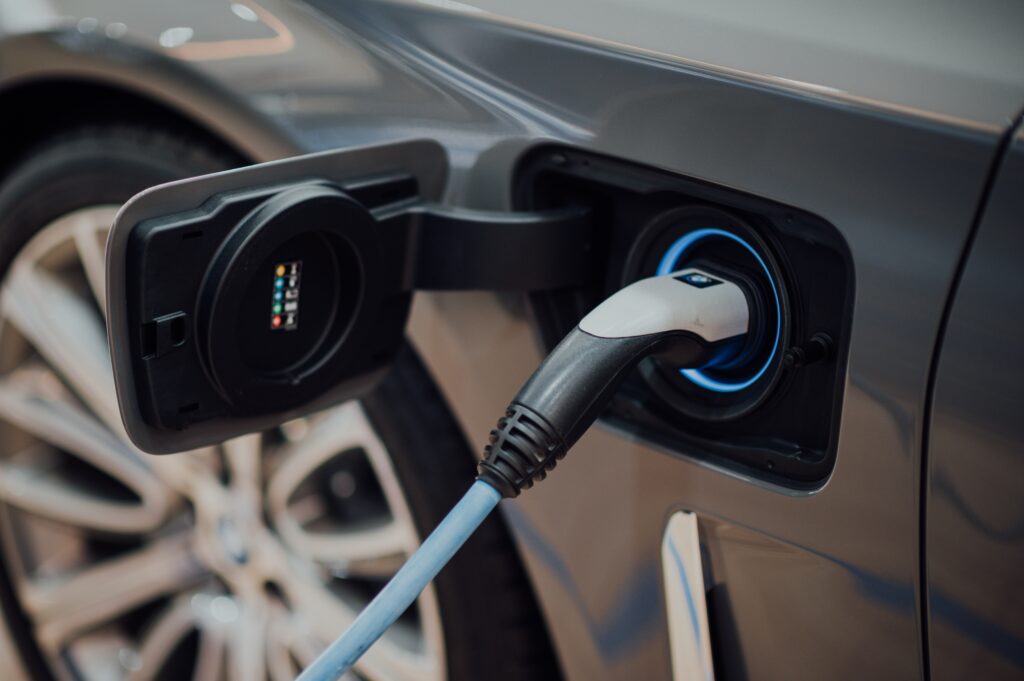As electric vehicles continue to surge in popularity, the need for comprehensive and cost-efficient electric car insurance has never been more important. Understanding the nuances of insuring an electric vehicle can be difficult, but Higginbotham is dedicated to guiding you through the process and helping you make the most informed decision possible. Now, get ready to learn about coverage options, factors affecting insurance costs and tips for saving on your electric car insurance.
Car Insurance for Electric Vehicles
While electric car insurance may seem like a puzzling form of coverage, its basics align closely with those of conventional auto insurance. You’ll find that standard coverage options, such as collision and liability, are available for your electric vehicle, just as they are for gas-powered cars. However, there are some unique considerations for EV owners, such as higher repair and replacement costs, that may result in slightly higher insurance premiums.
With the growing popularity of electric vehicles, many car insurance companies have started to adapt their policies to cater to this thriving market. Now, the insurance process for an electric vehicle closely mirrors that of a gas-powered car, but unique aspects of electric vehicle ownership should be taken into consideration when selecting an auto insurance policy.
Standard Auto Insurance Policies
Liability coverage is a legal requirement for drivers in the United States, and it’s no different for electric vehicle owners. This coverage compensates for damages resulting from bodily injury and property damage to third parties for which the driver is held accountable, and, in most states, there’s a mandated minimum coverage requirement for liability insurance. Just like when shopping for traditional car insurance, it’s important to consider per-accident and per-person limits when selecting coverage for your electric vehicle.
Collision and comprehensive coverage are also essential components of any auto insurance policy, electric or otherwise. Collision coverage provides compensation for damages to your car caused by an accident, regardless of who is at fault, while comprehensive coverage can cover theft or damages caused by non-collision incidents, such as fire, severe weather or vandalism. Generally, these coverages are not legally required, but they may be demanded by your lender or lessor if you still owe money on your car loan or lease it.
Additional Coverage for Electric Cars
Choosing electric car insurance requires considering additional coverage options like roadside assistance and EV-specific criteria. Roadside assistance programs can provide valuable support in the event of unexpected issues, such as towing your EV to a charging station if you run out of battery power while on the road.
Electric vehicle drivers should also be mindful of battery-related risks, as the battery technology and lifespan can impact insurance costs and coverage. It’s essential to make sure that your insurance policy covers your battery, whether it’s leased or owned, so you can stay safe on the roads and offset the potentially significant expense of battery replacement or repair.
Do I need to insure my EV charging station?
When it comes to insuring your EV charging station, adding it to your homeowners’ insurance policy can provide protection. Note that charging an electric vehicle at home has the potential to lead to electrical surges or even fire, making sufficient coverage for your charging station and your home indispensable. Be sure to consult with a home and auto insurance agent to determine the best course of action for insuring your EV home charging station and protecting your investment in both your home and your electric car.
Why does EV insurance cost more?
You might wonder why electric car insurance rates tend to be higher than those for gas-powered vehicles. In short, electric vehicle insurance is more expensive due to the higher sticker price of EVs and the increased repair and replacement costs, both of which can result in higher premiums. Additional factors like driving history, battery technology and annual mileage can also play a role in determining insurance rates.
EV Repair and Replacement Costs
When it comes to electric vehicles, repair and replacement costs can be a significant factor in determining insurance rates. Some of the most common repairs for electric cars include battery replacement, charging system repair, motor repair and transmission repair. While electric cars generally require fewer repairs than gas-powered vehicles, the cost of replacement parts and labor for EVs can be higher due to the need for specialized worker training, scarcity of parts and potential supply chain issues.
This higher cost of repair and labor can mean higher costs for insurance carriers in the event of a claim. Because of this risk, electric vehicle drivers may have to pay a higher insurance premium, regardless of their driving record. However, as electric cars grow more prevalent, an increase in the availability of parts and trained labor is expected, potentially leading to reduced repair costs for EVs – and, consequently, more favorable electric car insurance rates.
Battery Considerations for Electric Cars
Battery technology and lifespan are other factors that can impact insurance costs for electric vehicles. While replacing an electric vehicle battery can be significantly more expensive than replacing the battery of a gas-powered car, the average lifespan of an EV battery is generally estimated to be between 10-20 years, depending on various factors like size, pack and manufacturer.
Though infrequent, battery replacement costs for insurance carriers are significantly higher than those of gas-powered cars. And, additional risks associated with electric car batteries, such as fire hazards, battery damage, risks to first responders and charging-related risks, can further contribute to the higher price of EV insurance.
Other Factors in Your EV Insurance Rate
Several other factors can influence the cost of electric car insurance, including your driving history, conduct, annual mileage and credit score (in certain states). Just like with gas-powered car insurance, your driving history, including traffic violations, at-fault accidents, claims history and driving experience, can significantly affect your EV insurance rates.
Another factor to consider is your annual mileage. The higher your annual mileage, the higher your electric vehicle insurance premium is likely to be. Lastly, depending on the state, your credit score could play a role in determining your insurance rates, with drivers having poor credit potentially facing higher premiums.
How to Save Money on Electric Car Insurance
While electric car insurance costs may be higher than those for gas-powered vehicles, there are several strategies you can employ to save money on your policy.
Bundle Your Insurance
Bundling your insurance policies can help you save on your electric car insurance. By bundling your EV insurance with another policy, such as homeowners’ or renters’ insurance, you can save money and enjoy the convenience of having all of your insurance policies in one place.
Remember, bundling discounts can differ among insurance carriers. Our team at Higginbotham can do the quote shopping for you to help you decide the appropriate coverage and rates for your needs.
Take Advantage of Discounts and Incentives
Some auto insurance companies offer “alternative fuel” or “green car” discounts for electric car drivers, which can help reduce your monthly premium cost. Additionally, you may qualify for rebates, tax credits and other incentives offered to electric vehicle drivers. For example, the Internal Revenue Service (IRS) offers up to $7,500 in tax credit for qualified electric vehicles bought after April 2023, helping offset potentially higher insurance costs.
Use an Insurance Broker
Using an insurance broker can be a great way to find the right coverage at the best available price for your electric vehicle. Insurance brokers specialize in understanding the unique needs and requirements of electric vehicle insurance and can help you compare policies, understand policy details and determine the appropriate level of coverage. At Higginbotham, our team of insurance brokers leverages our relationships with national insurance carriers to help find the best possible EV insurance policy for you.
The Future of Electric Car Insurance
As the electric vehicle market continues to grow, the future of electric car insurance is influenced by several factors, including decreasing battery costs, increasing popularity of electric cars and evolving legislation.
Decreasing Battery Costs
Thanks to technological advancements, economies of scale and ongoing research, battery costs for electric vehicles are expected to decrease over time. This decrease could not only make owning an EV more affordable, but it could also influence insurance costs for electric car owners. With declining costs for EV components like batteries, the overall cost of both owning and insuring an electric vehicle may become more comparable to the costs associated with a gas-powered vehicle.
Increasing Popularity of Electric Cars
The growing popularity of electric cars is another factor that may lead to more competitive auto insurance rates in the future. According to the International Energy Agency, electric cars have seen exponential growth, with the share of EVs in total sales increasing from four percent in 2020 to 14 percent in 2022.
As more people choose to drive electric vehicles, insurance companies may begin to adjust their pricing to accommodate this growing market segment. Increased competition among insurers could result in better coverage options and more competitive rates for electric vehicle owners.
Electric Vehicle Legislation
Legislation surrounding electric vehicles also has the potential to impact EV drivers’ insurance costs. Over the years, federal and state regulations have been implemented to support the adoption of electric vehicles, and there has been a rise in the number of bills referencing electric vehicles at the state and federal levels. As legislation evolves and electric vehicles become more mainstream, insurance requirements and costs may change accordingly.
Navigating EV Insurance with Higginbotham
As the landscape of electric vehicle insurance continues to evolve, staying informed and choosing the right coverage becomes more crucial than ever. With electric vehicles growing in popularity and the insurance market adapting to this change, navigating these exciting developments in a cost-effective way can be difficult. At Higginbotham, our team is committed to providing tailored insurance solutions that cater to the unique needs of your electric vehicle.
You don’t have to navigate this journey alone. Get in touch with our team today to explore your EV insurance options.







